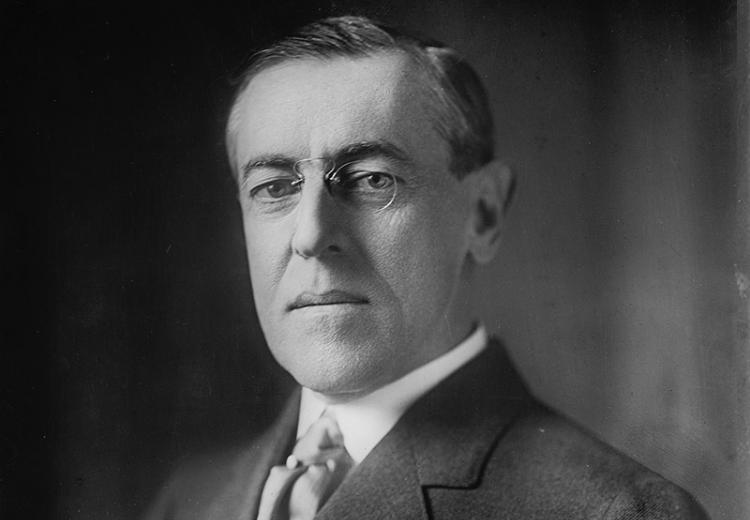Lesson 3: Wilson and American Entry into World War I

Woodrow Wilson tried to keep America out of World War I, and succeeded in postponing U.S. entry into the war for almost three years.
In August 1914, President Woodrow Wilson asked Americans to remain impartial in thought and deed toward the war that had just broken out in Europe. Wilson wanted the United States to exemplify the democratic commitment to peace, but "The Great War" continually challenged the nation's neutrality. American farms and factories fed and armed Europe's armies; both the Allied and Central powers violated international laws governing ocean travel and shipping. For almost three years, the President presided over a difficult, deteriorating neutrality, until finally the provocations could no longer be ignored or negotiated. In this lesson, students will analyze one of the most significant moments in twentieth century U.S. foreign relations: Wilson's decision to enter World War I in order to make the world "safe for democracy."
Guiding Questions
Was the decision to intervene in World War I justified?
How did U.S. involvement in WWI change international relations beyond the end of the war?
Was WWI the turning point in the U.S. becoming a world power?
Learning Objectives
Explain why the United States adopted a policy of neutrality after the outbreak of war in Europe in August 1914.
Analyze the challenges to American neutrality and evaluate the responses.
Evaluate the evidence used by President Wilson to justify U.S. entry into WWI.
Evaluate the ways in which Wilson's foreign policy changed international relations and extended democracy.
